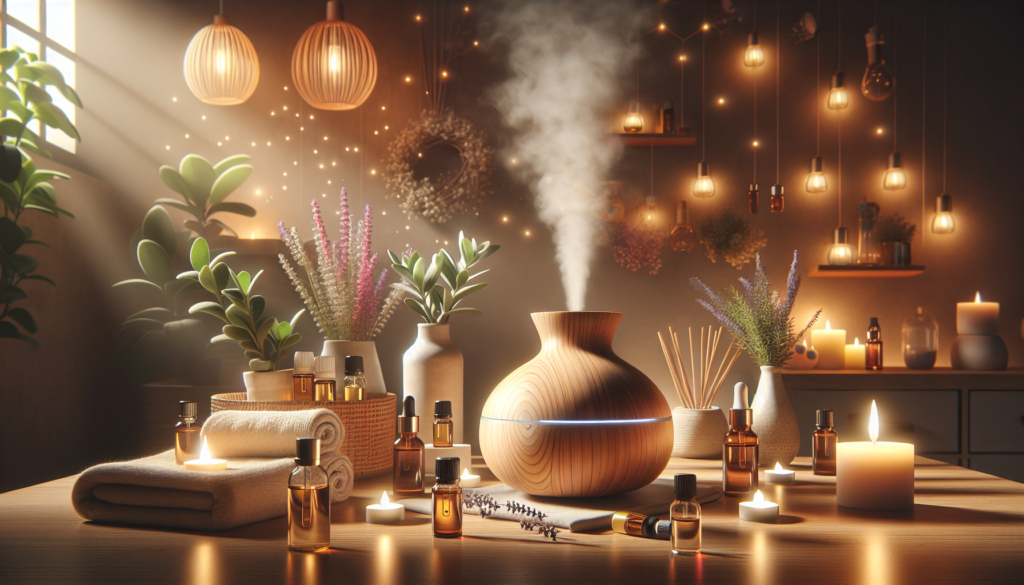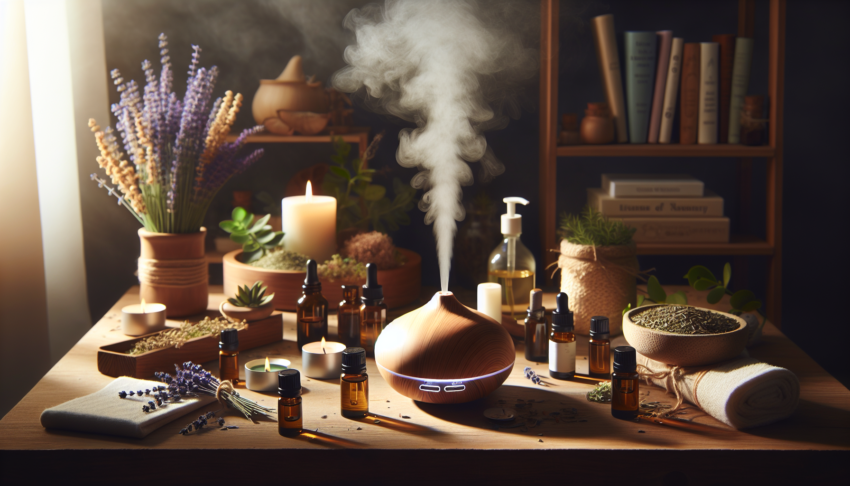Aromatherapy – an ancient practice that harnesses the power of scent to enhance well-being and promote relaxation. By using essential oils extracted from plants, aromatherapy stimulates our olfactory system, triggering various physical and emotional responses. Whether in the form of massage oils, diffuser blends, or bath salts, aromatherapy has become a popular tool for managing stress, improving mood, and supporting overall health. Discover how this age-old practice can bring a sense of tranquility and balance into your life, and how incorporating it into your daily routine can positively impact your well-being.
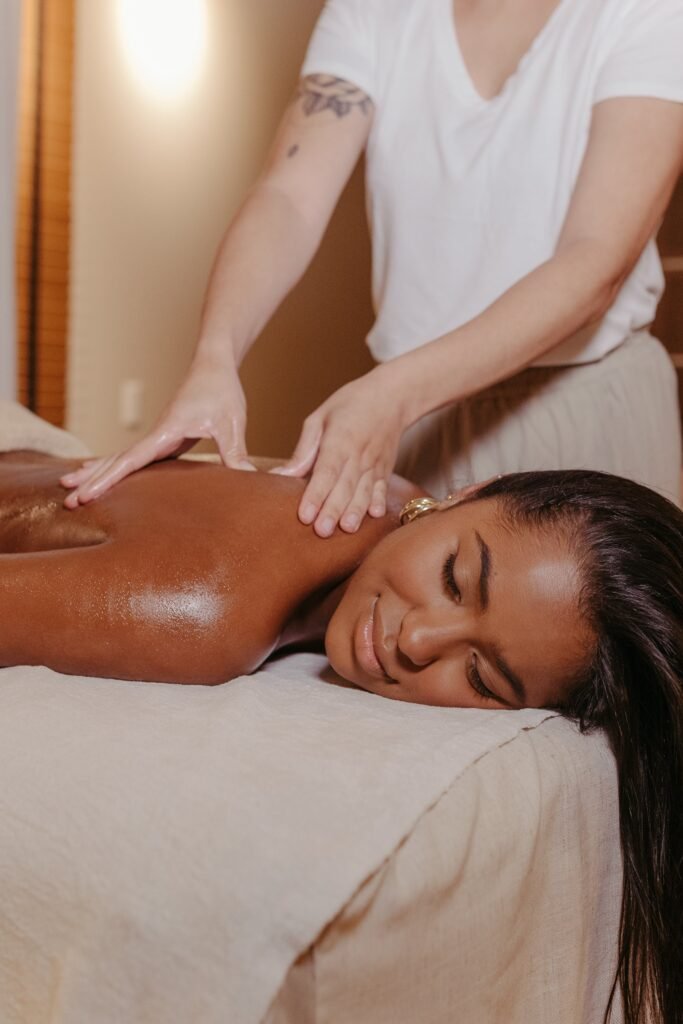
What is Aromatherapy?
Definition of Aromatherapy
Aromatherapy is a holistic healing practice that utilizes essential oils to promote physical, mental, and emotional well-being. Derived from plants, these potent oils are believed to have therapeutic effects on the body and mind.
Historical Background
Dating back thousands of years, the use of aromatherapy can be traced to ancient civilizations such as Egypt, Greece, and China. Egyptians utilized aromatic oils in religious rituals and embalming, while the Chinese employed them for medicinal purposes. The term “aromatherapy” itself was coined in the early 20th century by René-Maurice Gattefossé, a French chemist who experienced the healing properties of essential oils firsthand.
The Science Behind Aromatherapy
How Aromatherapy Works
Aromatherapy works through the inhalation or topical application of essential oils, which are then absorbed into the bloodstream. These oils contain various compounds that can interact with the body’s physiological systems, such as the nervous system and the limbic system, which is responsible for emotions and memory. By stimulating these systems, aromatherapy can have a profound effect on both the physical and emotional aspects of well-being.
Essential Oils and Their Properties
Essential oils are volatile plant extracts obtained through methods such as steam distillation or cold pressing. Each oil possesses unique properties and characteristics, making them suitable for specific purposes. For example, lavender oil is known for its calming and stress-relieving properties, while eucalyptus oil has decongestant and antiviral effects. It is crucial to understand these properties when using essential oils for different well-being purposes.
Methods of Application
Inhalation
Inhalation is one of the most common methods of using essential oils in aromatherapy. By adding a few drops of oil to a diffuser or inhaling directly from the bottle, the oils are released into the air, allowing you to breathe in their therapeutic benefits.
Topical Application
Topical application involves diluting essential oils with carrier oils, such as coconut or jojoba oil, and applying the mixture directly to the skin. This method can be beneficial for localized issues like muscle tension or skin conditions.
Massage
Massage combines the benefits of essential oils with the power of touch. During a massage, diluted essential oils are applied to the skin, allowing for absorption while promoting relaxation and easing muscle tension.
Bathing
Adding essential oils to a warm bath is a luxurious way to experience aromatherapy. The steam and heat from the water help release the oils’ aromatic molecules, which can be inhaled and absorbed by the body.
Diffusion
Diffusion involves using devices such as diffusers or vaporizers to disperse essential oils into the air. This method creates a pleasant scent throughout the room and allows for inhalation of the oils’ therapeutic properties.
Benefits of Aromatherapy
Stress Relief
One of the significant benefits of aromatherapy is its ability to reduce stress and promote relaxation. Essential oils such as lavender, chamomile, and bergamot have calming properties that can help ease anxiety and promote a sense of well-being.
Improved Sleep
Aromatherapy can be a valuable tool in improving sleep quality. Oils like lavender and vetiver have sedative effects, helping to induce sleep and create a peaceful sleep environment.
Boosted Mood
Certain essential oils, such as lemon, orange, and peppermint, have uplifting properties that can boost mood and help alleviate symptoms of depression or low energy. The aromas of these oils can stimulate the brain, promoting feelings of positivity and well-being.
Enhanced Immunity
Many essential oils possess antimicrobial and antiviral properties, making them useful in supporting the immune system. Oils like tea tree, eucalyptus, and cinnamon can help protect against common pathogens and strengthen the body’s natural defenses.
Pain Relief
Aromatherapy can provide relief from various types of pain, including headaches, muscle aches, and joint discomfort. Oils such as peppermint and eucalyptus have analgesic properties that can help alleviate pain and promote relaxation.
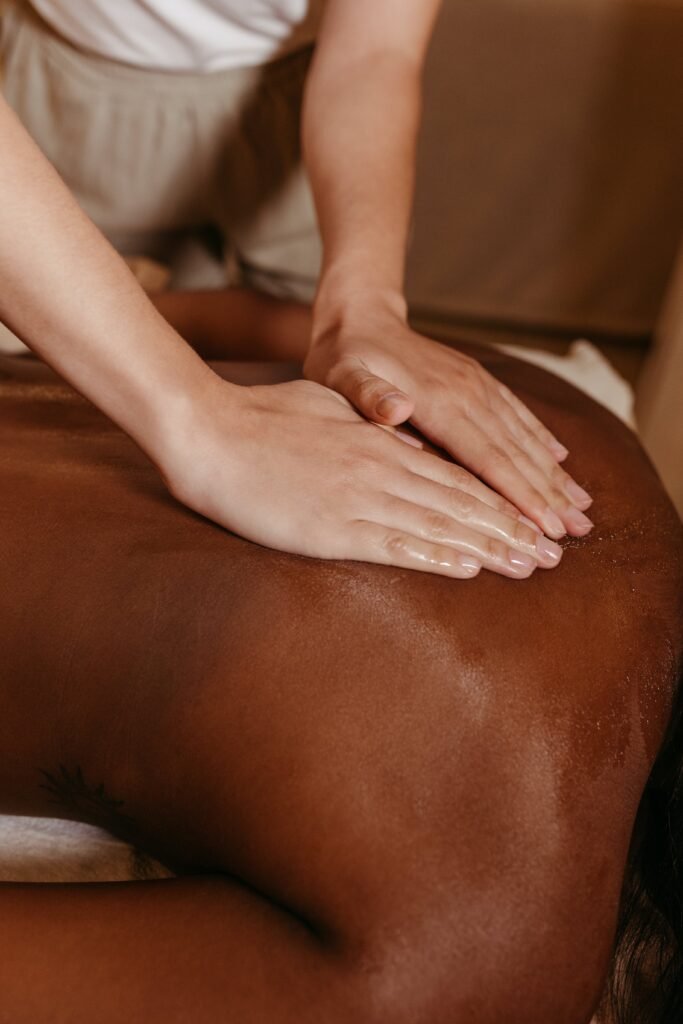
Common Essential Oils
Lavender
Lavender essential oil is one of the most popular and versatile oils in aromatherapy. Its soothing scent is known for its stress-relieving properties and its ability to promote relaxation and better sleep.
Eucalyptus
Eucalyptus oil is well-known for its invigorating and decongestant properties. It can help relieve respiratory congestion, relieve muscle soreness, and improve mental clarity.
Peppermint
Peppermint essential oil has a refreshing and cooling effect. It can be used to relieve headaches, soothe digestive discomfort, and promote mental focus and alertness.
Tea Tree
Tea tree oil is highly regarded for its powerful antimicrobial properties. It can be used to treat skin infections, soothe acne, and promote a healthy scalp and hair.
Lemon
Lemon essential oil has a bright and citrusy aroma that can uplift the mood and increase focus. It is also known for its cleansing and antibacterial properties.
Safety Precautions
Proper Dilution
Essential oils are highly concentrated and should be diluted before applying to the skin. Dilution helps prevent skin irritation and adverse reactions. Follow recommended guidelines for the specific oil you are using.
Patch Testing
Before applying a new essential oil topically, perform a patch test on a small area of skin to check for any adverse reactions. This is particularly important for individuals with sensitive skin or pre-existing skin conditions.
Avoiding Certain Oils
Some essential oils, such as cinnamon or clove, can be irritating or sensitizing to the skin. It is crucial to research and understand which oils may not be suitable for your specific needs or conditions.
Pregnancy and Children
Certain essential oils are not recommended for use during pregnancy or for young children. It is essential to consult with a qualified aromatherapist or healthcare professional to ensure safe usage during these periods.

Aromatherapy for Specific Well-being Issues
Anxiety and Depression
Aromatherapy can be a valuable tool in managing symptoms of anxiety and depression. Oils like lavender, bergamot, and chamomile can promote a sense of calm, reduce stress, and lift mood.
Insomnia
If you struggle with insomnia or have difficulty falling asleep, aromatherapy can offer natural support. Essential oils such as lavender, vetiver, and roman chamomile have sedative properties that can help induce sleep and improve sleep quality.
Headaches
Essential oils like peppermint and lavender can provide relief from tension headaches and migraines. These oils have analgesic and calming properties that can help soothe headaches and alleviate symptoms.
Muscle Tension
Aromatherapy can be effective in easing muscle tension and reducing pain. Oils such as peppermint, eucalyptus, and rosemary have antispasmodic properties that can help relax muscles and reduce discomfort.
Sinus Congestion
Oils such as eucalyptus, peppermint, and tea tree have decongestant and expectorant properties that can help relieve sinus congestion and support respiratory health. Inhalation or topical application of these oils can provide relief from common cold symptoms.
Combining Aromatherapy with Other Practices
Yoga and Meditation
The combination of aromatherapy with yoga and meditation can enhance the overall experience and provide additional support for relaxation and focus. Diffusing essential oils during practice or applying them before meditation can deepen the mind-body connection.
Acupuncture
Aromatherapy can complement acupuncture sessions by creating a calming and soothing environment. The use of essential oils, such as lavender or frankincense, can help relax the mind and enhance the overall therapeutic effects of acupuncture.
Massage Therapy
Aromatherapy and massage therapy complement each other perfectly. The combination of essential oils and massage techniques can provide deeper relaxation, relief from muscle tension, and an enhanced sense of well-being.
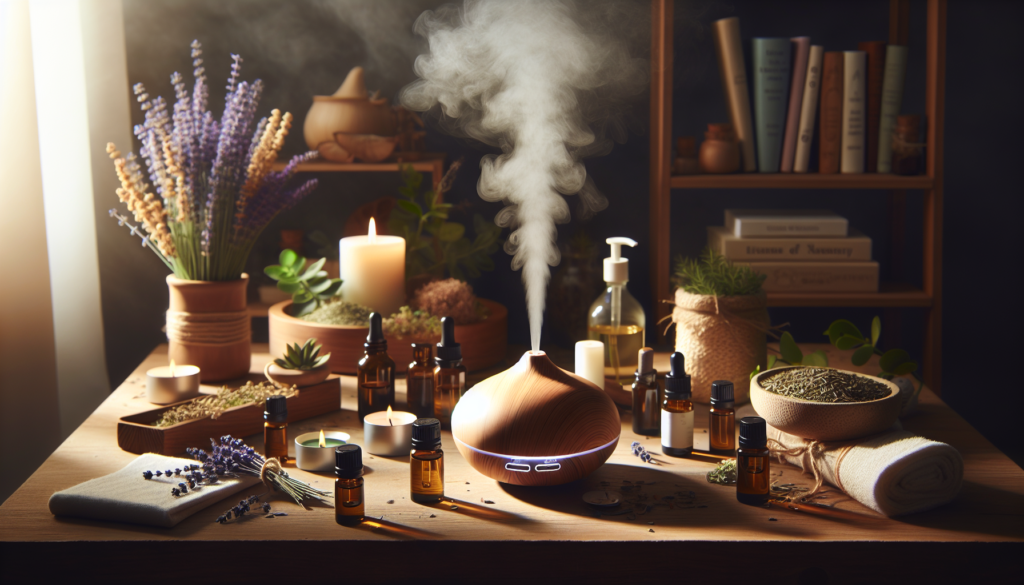
Finding the Right Aromatherapy Products
Choosing Quality Essential Oils
When purchasing essential oils, it is essential to choose high-quality, pure oils from reputable brands. Look for oils that are labeled as 100% pure and have undergone third-party testing to ensure their quality and authenticity.
Diffusers and Vaporizers
When selecting a diffuser or vaporizer for aromatherapy, consider factors such as the size of the room, the runtime of the device, and the preferred method of diffusion (water-based or nebulizing). Choose a device that suits your needs and preferences.
Bath and Body Products
Aromatherapy bath and body products, such as bath salts, shower gels, and lotions, provide a convenient way to incorporate aromatherapy into your daily self-care routine. Look for products made with natural ingredients and pure essential oils for maximum benefits.
Conclusion
The Versatility of Aromatherapy
Aromatherapy offers a versatile and natural approach to promote well-being. Whether you are seeking stress relief, improved sleep, or mood enhancement, there is an essential oil and method of application that can support your needs.
Personal Experimentation and Responsibility
As with any holistic practice, it is essential to listen to your body and personalize your aromatherapy experience. Start with small doses and observe how your body responds to different oils and methods of application. Remember to consult with a qualified aromatherapist or healthcare professional for specific concerns or conditions.
Incorporating aromatherapy into your wellness routine can provide numerous benefits for your overall physical and emotional health. So, why not give it a try and experience the power of aromatherapy for yourself? Remember, the well-being journey is unique to each individual, so take the time to explore and find what works best for you.
